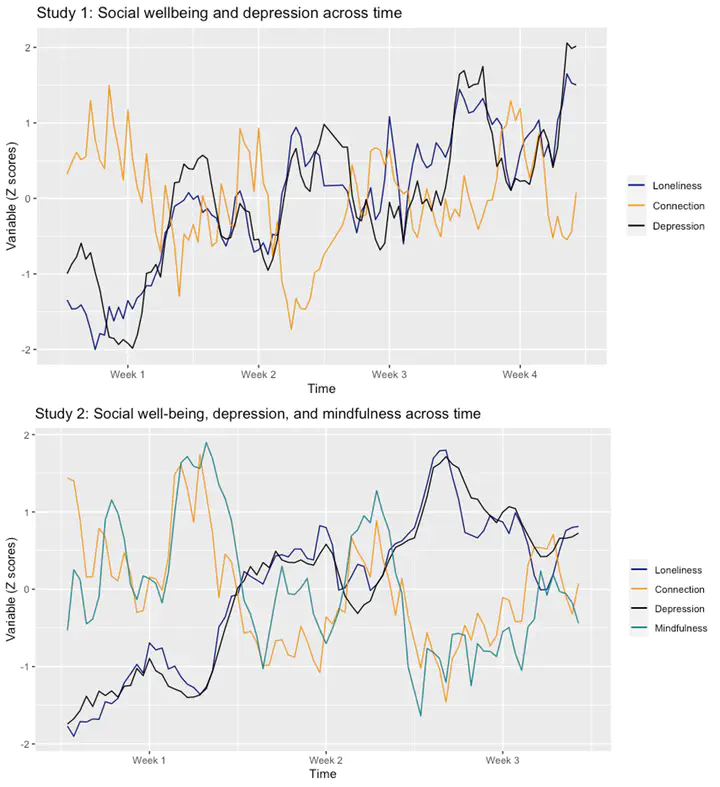Mindful states, A promoter of social well-being and mental health

Abstract
Research on mindfulness points to its relation with various well-being outcomes, however there is little research on the connection between states of mindfulness and social well-being. The present study is aimed at addressing this topic by examining how day-to-day mindfulness is related to social well-being, measured as loneliness, felt connection to others, and mental health, measured as depression, among university students. Data were collected from two student samples (N = 209 and N = 266) via ecological momentary assessment over the course of one academic semester. The analysis of temporal patterns of loneliness, connection, and depression with separate multilevel models revealed that social well-being declined towards the end of academic semester, whereas depression increased in both samples. Analyses of the relations of mindfulness to social well-being and mental health were conducted with separate multilevel models. Higher mindfulness was concurrently related to lower loneliness, higher felt connection to others, and lower depression. Mindful states also predicted later, lower levels of loneliness and depression. This research suggests that being more present-centered has social well-being and mental health benefits.